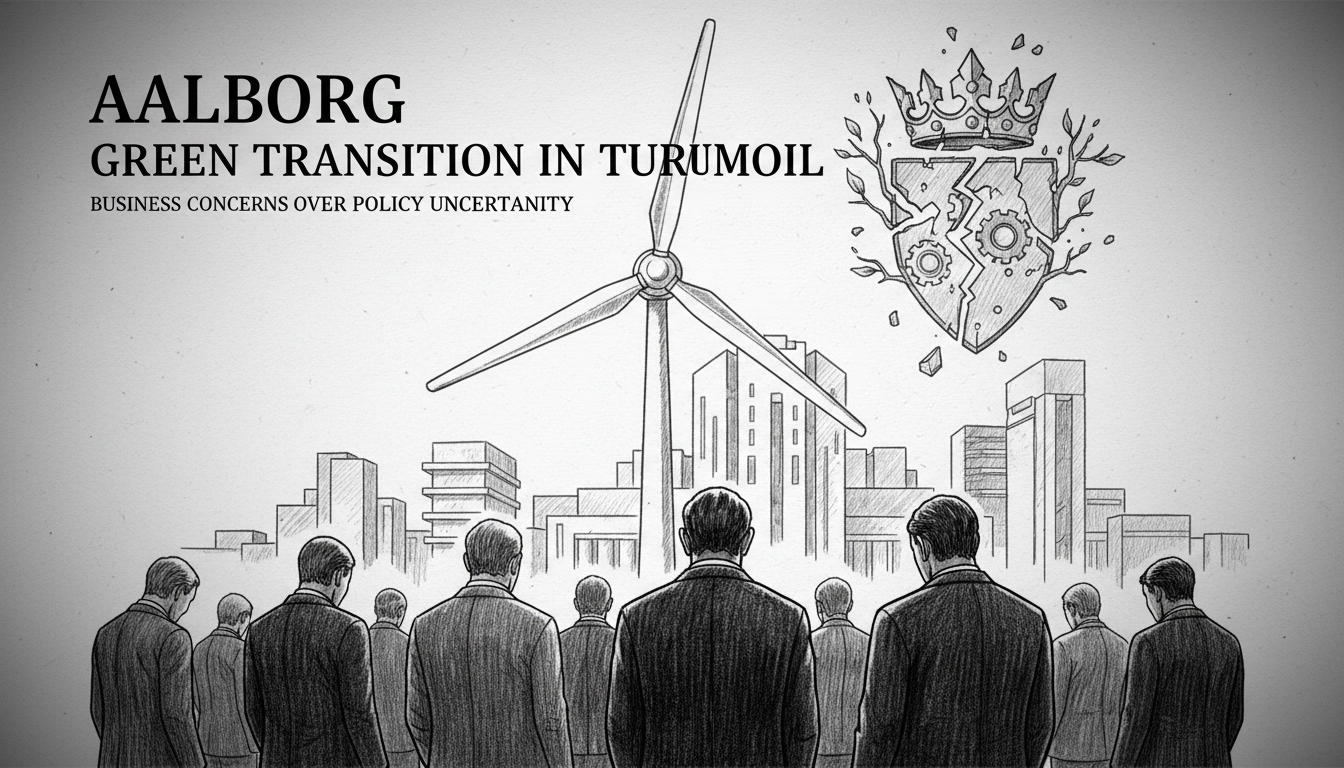A dramatic political showdown in Aalborg has exposed deeper tensions about Denmark's green transition and economic stability. The brief collapse of a Social Democratic majority in Denmark's fourth-largest city sent shockwaves through business circles. This comes as Danish companies increasingly depend on stable municipal policies for renewable energy investments.
Radical Liberal politician Jes Lunde briefly became mayor after center-right parties backed his candidacy. The move collapsed within hours when a Conservative councilor broke ranks. Lunde acknowledged the political motivation behind the maneuver. The center-right bloc clearly chose me to overthrow a Social Democratic administration, he said in a radio interview. That was their primary motivation.
What made the temporary alliance remarkable was its policy foundation. Lunde emphasized he secured commitment to significant green transition priorities and quality improvements in childcare and schools. The proposed agreement included more forest areas, additional urban trees, cleaner water in Limfjorden, and protection of Aalborg's drinking water. These are substantial environmental commitments that would require municipal budget allocations.
Conservative councilor Vibeke Gamst delivered scathing criticism of the political maneuver. She described the attempt as disorder upon disorder, lie upon lie, cheat upon cheat. Her decision to support the Social Democratic candidate Lasse Frimand Jensen ultimately preserved the red bloc majority.
The political instability raises concerns for Aalborg's business community. Major companies like Aalborg Portland and Siemens Gamesa have significant operations in the region. They rely on predictable municipal policies for their green energy investments. The Copenhagen Stock Exchange monitors such political developments closely, as they can impact renewable energy sector performance.
Denmark's renewable energy sector represents a substantial portion of national exports. The country aims to reduce greenhouse gas emissions by 70% by 2030. Municipal support remains crucial for achieving these national targets. Aalborg hosts several wind energy companies and green technology firms that require stable local governance.
The Øresund region business community watches Aalborg developments with interest. Political stability in Denmark's larger municipalities directly affects investment decisions. Companies considering expansion in Jutland often evaluate municipal political landscapes before committing resources.
This political drama demonstrates how local government instability can create uncertainty for business planning. While the immediate crisis has passed, the underlying tensions remain. Danish companies operating in Aalborg will monitor whether the restored majority can deliver consistent policy support for green transition initiatives.
The episode highlights broader challenges in Danish municipal politics. Balancing environmental ambitions with economic practicalities requires stable governance. As Denmark positions itself as a green energy leader, political stability at the municipal level becomes increasingly important for maintaining investor confidence.

